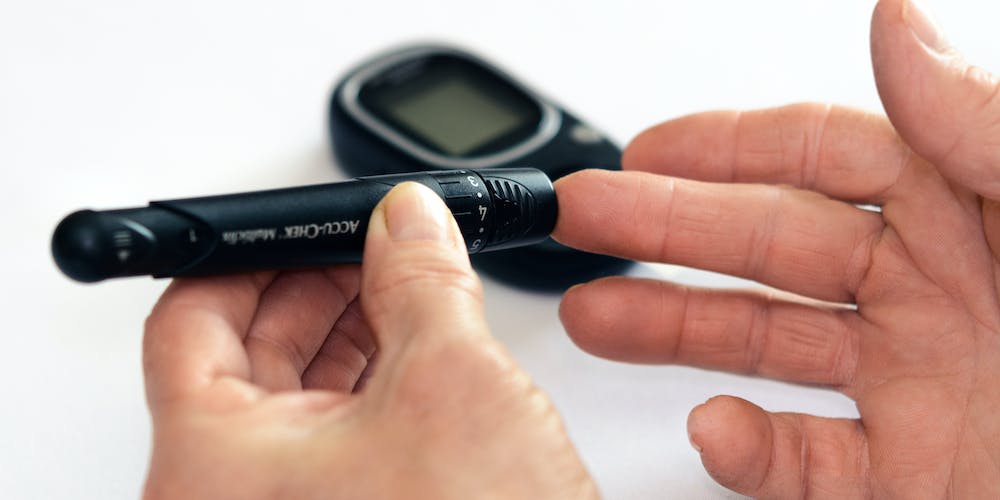Whether someone with diabetes qualifies for benefits through the disability programs administered by the Social Security Administration depends on the severity of the condition. Some people with diabetes can work and engage in daily activities, while others have serious complications that make working and earning a living difficult or impossible.
If you have been diagnosed with diabetes and cannot work, it’s essential to know the answer to the question: “Does diabetes qualify for disability benefits?” The disability lawyers at Liner Legal want you to know about the disability benefits available to people with diabetes. This blog post explains disability programs available through the Social Security Administration and how to qualify for disability benefits.
Disability Benefits Available For Someone With Diabetes
Social Security has two programs that provide disability benefits: Social Security Disability Insurance and Supplemental Security Income. The SSDI program is part of the Social Security retirement system. You must work long enough at a job or through self-employment and pay Social Security taxes on the money you earn to meet the non-medical eligibility requirements.
If you do not meet the non-medical requirements for SSDI, the SSI program may be available because it does require a work history. SSI is a needs-based program for disabled adults and children who have limited income and resources. For example, the total value of resources available to you cannot exceed $2,000 as an individual or $3,000 for eligible couples.
The fact that you meet the non-medical requirements for either disability program is only the first step in the process to qualify for benefits. The second step to qualify for disability benefits through SSI and SSDI is to have a medical condition that meets the standard used by Social Security to determine whether you have a qualifying disability.
The Federal Disability Standard To Qualify For Benefits For Diabetes
According to federal regulations, you must be disabled according to the following standard to receive SSI and SSDI:
- You must have a medically determinable physical or mental impairment.
- The impairment or impairments must be expected to last for at least 12 months or result in your death.
- The impairment or impairments must prevent you from engaging in substantial gainful activity, meaning you cannot perform work-related activities.
There are two ways to prove that a medical condition is severe enough to cause a disability that prevents you from working.
The first way is to match one of the conditions in the Blue Book, which is the name given to a listing of impairments deemed severe enough to qualify for disability benefits. The other way to meet the disability standard is with medical evidence proving you have a condition severe enough to reduce your residual functional capacity, which is your ability to walk, sit, climb steps, and do other work-related activities.
Is Diabetes A Disability?
Diabetes is not included in the listing of impairments maintained by the Social Security Administration, but it does list some of the complications caused or worsened by diabetes, including:
- Diabetic neuropathy: Nerve damage affecting a diabetic’s ability to sense, move, or coordinate their limbs.
- Diabetic retinopathy: Diabetics may suffer from eye damage causing vision impairment or blindness.
- Diabetic nephropathy: Kidney damage requiring dialysis or a transplant may be caused by diabetes.
- Cardiovascular disorders: Heart problems, such as coronary artery disease, congestive heart failure, and arrhythmia, may be complications of diabetes.
- Amputation: Infections and poor circulation caused by diabetes may require the removal of all or part of a limb.
If you do not have a complication from diabetes that matches or is equivalent to an impairment in the Blue Book, that does not prevent you from qualifying for benefits.
Another way to prove that complications from diabetes affect your ability to work is through a residual functional capacity assessment. Social Security evaluates your medical condition to determine how much it limits your capacity to engage in work-related activities, such as walking, sitting, lifting, climbing stairs, and remembering instructions.
Once it completes the assessment of your residual functional capacity, the Social Security Administration evaluates the limitations to determine if you can do a type of work that your work history shows you did in the past. If you cannot, it then looks at your age, education, skills, training, and other factors to determine if you can do any type of work available in the national economy.
Let Liner Legal Help With Your Disability Claim
Applying for disability benefits when you cannot work is not easy. The Social Security Administration reports that it rejects two-thirds of the benefit claims that people submit each year. The assistance of a disability lawyer gives you someone with the knowledge and experience to aggressively fight for the help you are entitled to receive.
Learn more about how Liner Legal Disability Lawyers can make a difference by helping you qualify for disability benefits. Contact us today for a free consultation.







